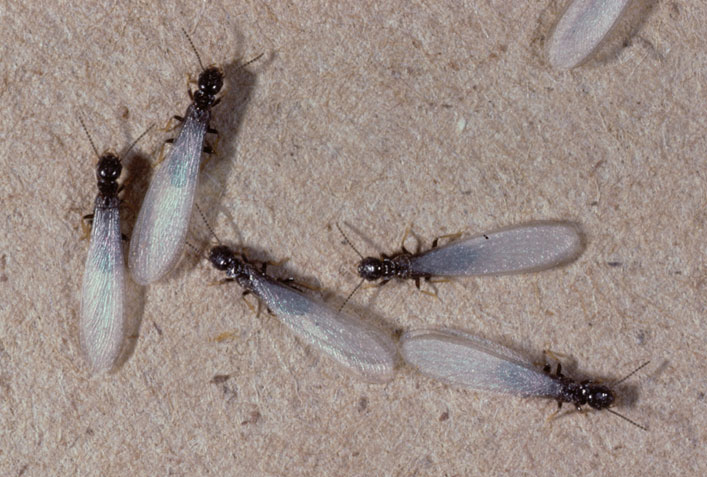Ecological Effect of Pest Control: Harmonizing Effectiveness With Sustainability
The ecological impact of insect control is a crucial problem that calls for a fragile equilibrium in between attaining effectiveness in handling bugs and ensuring sustainability of our ecosystems. From the use of damaging chemicals that leak right into our dirt and water to the unplanned effects on non-target varieties, the effects of conventional bug control techniques are far-ranging.
Unsafe Chemicals in Parasite Control
The application of harmful chemicals in insect control positions significant environmental and health risks that warrant careful consideration and mitigation strategies. Chemicals, pesticides, and herbicides are generally made use of to eradicate pests, yet their prevalent application can cause unexpected consequences. These chemicals can contaminate dirt, water sources, and the air, affecting not just the targeted bugs but additionally advantageous insects, wild animals, and people.

To address these risks, integrated pest monitoring (IPM) strategies are being advertised as an extra lasting choice. IPM includes a mix of methods such as biological control, habitat adjustment, and the targeted use chemicals as a last resource (ant control davidson nc). By adopting a holistic strategy to pest control, we can lessen the environmental and wellness effects related to dangerous chemicals while efficiently taking care of pest populaces
Effect On Non-Target Variety
Considering the unplanned repercussions of pest control approaches, the impact on non-target varieties is an essential aspect that requires extensive evaluation. While parasite control actions intend to target details bugs, other microorganisms in the community may be accidentally affected. Non-target types, consisting of helpful insects, birds, animals, and even plants, can experience straight or indirect damage from chemical applications or biological control approaches.
Pesticides designed to combat a particular insect parasite might harm pollinators like bees or all-natural killers such as ladybugs. Organic control representatives, if not species-specific, can present dangers to unexpected targets, interfering with the eco-friendly equilibrium.
To alleviate the effect on non-target varieties, integrated bug administration (IPM) methods that highlight an alternative method to pest control are recommended. These approaches focus on the use of eco pleasant methods, reducing harm to helpful organisms while properly taking care of pest populations. Conducting detailed danger evaluations and checking the outcomes of insect control efforts are essential actions in securing non-target types and advertising overall ecosystem health.
Soil and Water Contamination
Unplanned environmental repercussions of bug control methods expand past impacting non-target varieties, with considerable implications for dirt and water contamination. Pesticides, herbicides, and chemical plant foods utilized in insect control can seep into the dirt and pollute groundwater, positioning a threat to both earthbound and water communities. Dirt contamination can interrupt the equilibrium of microorganisms necessary for nutrition biking and plant growth, causing decreased dirt fertility and performance. Additionally, these chemicals can persist in the setting for extended periods, collecting in the soil and potentially going into the food web.
Water contamination is an additional critical problem connected with parasite control techniques. Runoff from farming areas treated with chemicals can lug these chemicals right into neighboring water bodies, affecting aquatic organisms and water quality. Contaminants in water sources can have far-reaching consequences, impacting not only water life but also human health through the consumption of infected water or aquatic organisms. To mitigate dirt and water contamination from parasite control tasks, integrated bug monitoring strategies that focus on sustainability and decrease chemical inputs are crucial.
Air Pollution From Chemical Usage
Exposure to airborne pesticides during farming applications postures a considerable concern for air pollution control steps. Furthermore, pesticide drift, where pesticides are brought by the wind to unintended locations, can lead to the contamination of nearby communities and water bodies.

Techniques for Sustainable Insect Control
In the world of agricultural methods, executing lasting insect control methods is vital for maintaining eco-friendly equilibrium and protecting crop returns. their explanation Lasting pest control emphasizes using eco-friendly techniques to take care of pest populations successfully while reducing damage to non-target microorganisms and communities. Integrated Pest Administration (IPM) is an extensively embraced technique that combines biological, social, physical, and chemical control techniques to achieve lasting insect administration remedies.
Crop rotation and diversification are likewise reliable techniques to interrupt pest life cycles and create less favorable conditions for pests to prosper. Inevitably, by integrating these lasting insect control strategies, farmers can attain a balance between pest management performance and environmental stewardship.
Final Thought
To conclude, the environmental effect of parasite control methods should be meticulously taken into consideration to balance performance with sustainability. Unsafe chemicals utilized in insect control can bring about soil and water contamination, air pollution, and harm non-target species - ant control. It is essential to execute lasting insect control techniques to minimize these adverse results on the environment and advertise a much healthier community for future generations
By adopting a holistic strategy to pest control, we can decrease the environmental and health and wellness effects linked with harmful chemicals while successfully taking care of pest populaces.

To minimize the air pollution caused by pesticide use, it is vital to embrace incorporated insect management approaches that focus on the use of non-chemical parasite control techniques, such as crop rotation, natural predators, and immune plant varieties. Sustainable pest control emphasizes the usage of ecologically pleasant approaches to handle parasite populations effectively while reducing harm to non-target organisms and ecological communities. Integrated Bug Management (IPM) is an extensively adopted technique that combines biological, social, physical, and chemical control methods to attain long-lasting bug management services.